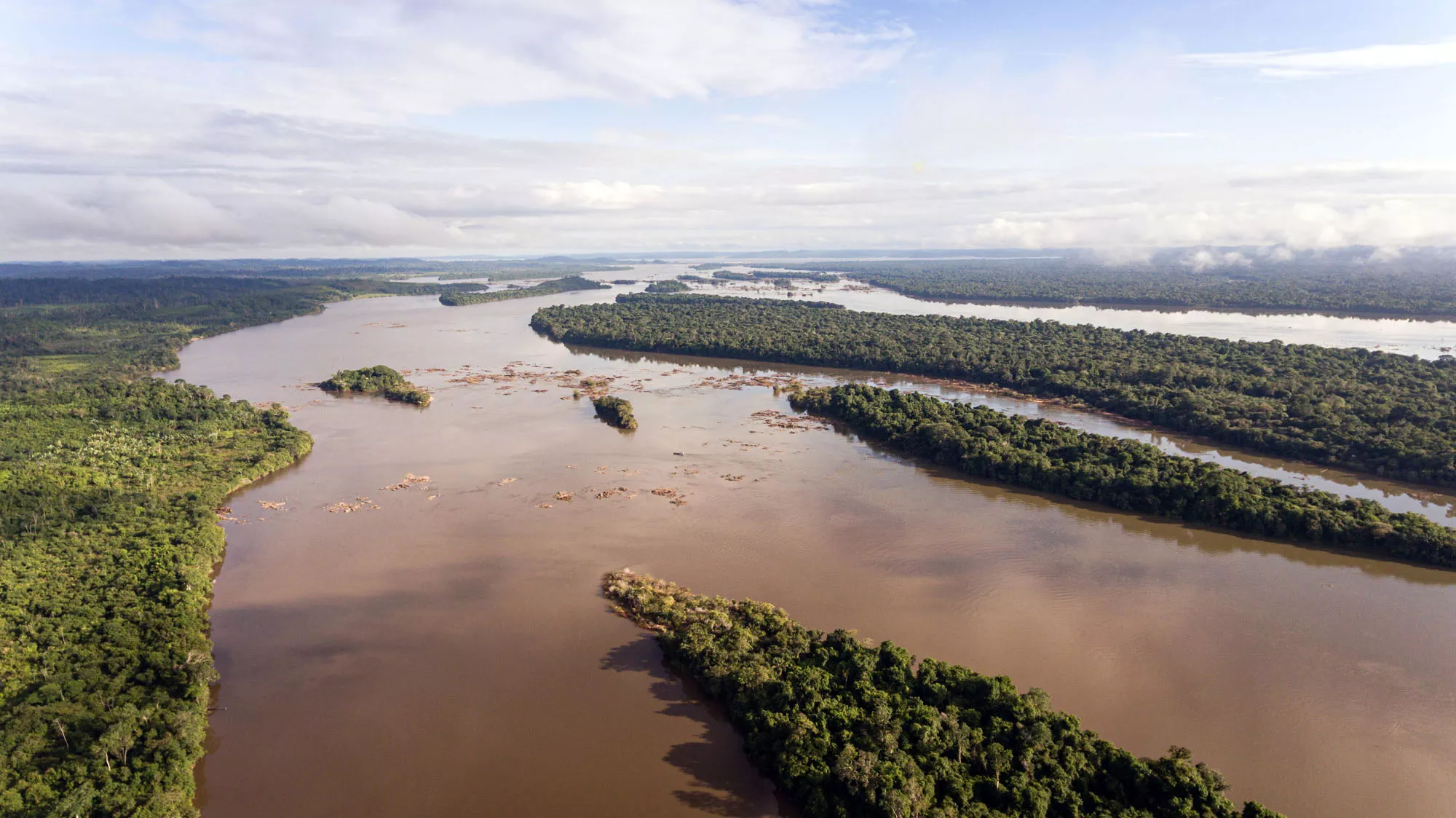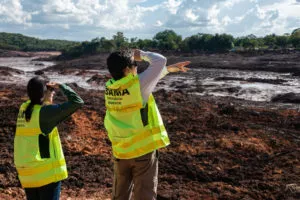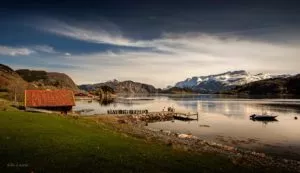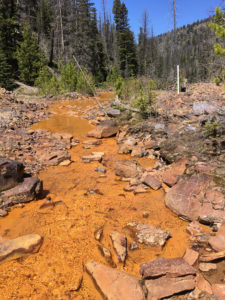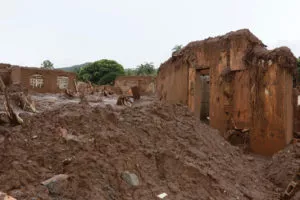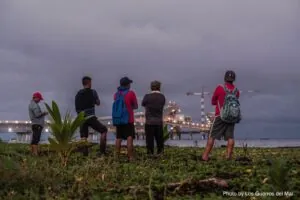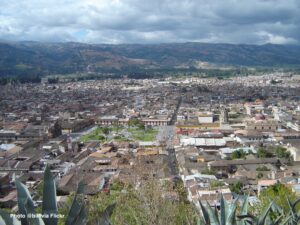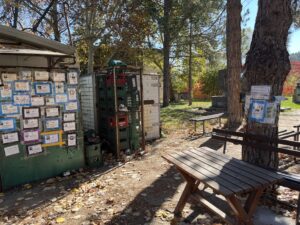Earthworks stands with communities on the frontlines of mining and oil and gas extraction. We work to implement long-term transformational alternatives to our energy and materials needs. We seek mandatory requirements to secure and ensure communities’ rights to approve or deny projects, to limit the harmful impacts of extractive industries, and to foster sustainable energy and materials systems.
Standing with Communities
Earthworks stands in solidarity with communities fighting mining injustice—in some cases, fighting mining projects that aren’t wanted or don’t belong. In other cases, we support communities already living with mining and experiencing adverse impacts.
Marginalized and Indigenous communities are disproportionately impacted by mining. In the U.S., most untapped transition mineral deposits are within 35 miles of Indigenous lands.
We advocate for companies and jurisdictions to respect the Free, Prior and Informed Consent (FPIC) of Indigenous communities, including their right to say no to mining. We provide technical, advocacy, networking, research and legal support to communities and grassroots groups leading their own campaigns.
Ending Risky Mining Practices
Irresponsible mine waste disposal threatens communities and fragile ecosystems around the world. Independent research shows that severe mine waste failures are occurring more frequently, and that without significant changes in policy and practice, they will continue to increase in severity and frequency.
Mine waste that is dumped directly into oceans, rivers and streams threatens marine ecosystems and fisheries, and the communities that depend on them. We work to rein in these impacts and end the riskiest mine waste disposal practices by calling on companies, governments and financial institutions to put Safety First and ditch ocean dumping of mine waste.
Reforming the Rules
The United States has been subsidizing destructive and unjust mining for 150 years. Under the 1872 Mining Law, public land is given away for free to mining companies. Mining companies have taken $300 billion in minerals without paying a dime to U.S. taxpayers. The mining industry has littered the landscape with 500,000 abandoned mines and left taxpayers with the clean up bill.
We seek to overhaul U.S. mining laws and regulations to prioritize community consent and the right to say no, and to improve oversight and accountability. We also advocate for strong mandatory requirements to govern mining globally.
Improving Mining Practices
Around the world, thousands of communities live with the impacts of irresponsible mining, and many of these jurisdictions—including the U.S.—have inadequate or weak rules and oversight for mining operations.
Recognizing this gap, 15 years ago, labor unions, community groups, and NGOs embarked on an effort to define what more responsible mining practices would look like—and engaged with mining companies and downstream buyers of minerals to build a system for oversight and verification with compliance. The result is the Initiative for Responsible Mining Assurance (IRMA), which offers independent, third-party auditing and transparency at mine sites against its 400-page Standard.
Earthworks has been, and continues to be, critical of many voluntary and certification systems, particularly those initiated and governed by industry. IRMA’s multi-sector governance, independent oversight and strong standard differentiate it from the myriad industry-led systems. We believe that IRMA’s standard and audits can be an additional tool in the toolbox to provide transparency and hold mining companies accountable for the human rights, environmental, and labor conditions at a specific mine site.
Read our statement regarding our work with IRMA.
Advancing Transformative Solutions
We must accelerate the transition to renewable energy–but we must do so without repeating the injustices of dirty fossil fuel extraction. Renewable energy and electric vehicle production require cobalt, nickel, lithium and other minerals. Our Making Clean Energy Clean, Just & Equitable initiative aims to ensure that the transition to renewable energy sources is powered by responsibly and equitably sourced minerals that moves the mining industry toward more responsible practices, while minimizing the need for new extraction. Research demonstrates the significant potential for recycling to offset demand for newly mined metals for electric vehicle batteries.
Related Blogs
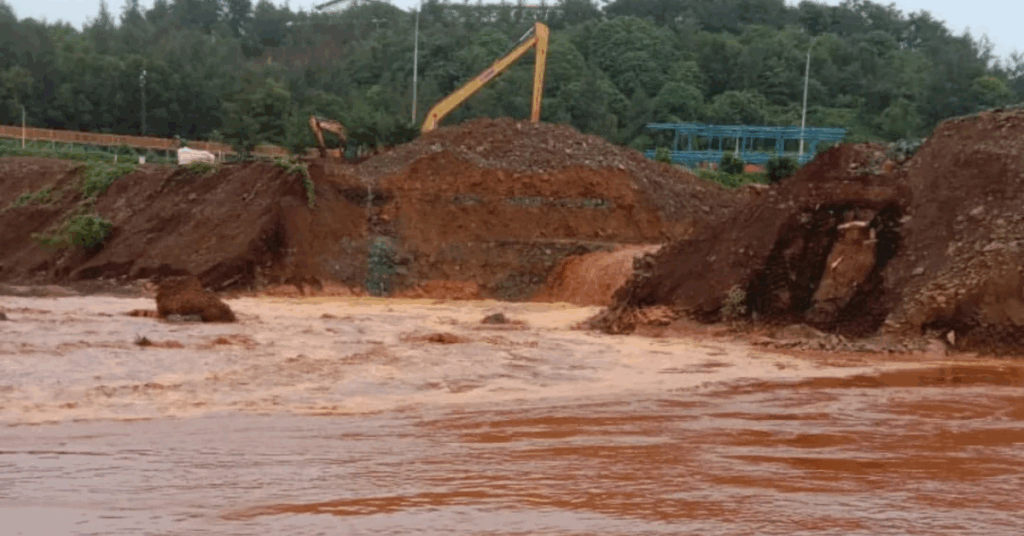
Nickel Waste Floods Homes in Indonesia, Sparking Protests
From June 10 to 13, 2025, heavy rainfall hit Obi Island in Indonesia. As a result, muddy floods submerged three …

